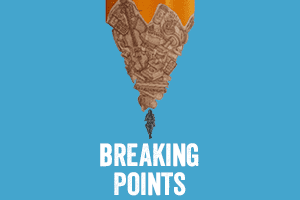This article is part of a series on navigating teens stress and anxiety, a common reason for substance use. Find the full series at Stress & Drug Use: What Every Parent Should Know.
Students today are more anxious and stressed out than ever before. Julie Lythcott-Haims saw this first-hand when she served as Stanford University’s Dean of Freshmen for a decade. She attributes this burgeoning mental health crisis in today’s young adults to both the intense pressure for academic achievement as well as parents’ over-zealous desire to see their child be successful.
In her book How to Raise an Adult: Break Free of the Overparenting Trap and Prepare Your Kid for Success, she describes how in our scary, competitive world, parents have developed a ‘checklist’ to lead to their child’s success. And as a result, childhood has become a time of overscheduling and overwhelming competition between school, homework, extracurricular activities, sports, clubs, community service, friends and more.
This increase in anxiety and stress is happening in kids everywhere — not just at Ivy League schools. As childhood and young adulthood become more and more goal-oriented (for example: getting straight A’s, getting into a top-tier university, being the president of several extracurricular clubs), kids are feeling more and more pressure to do just about anything to check items off their parents’ list.
In her book, Lythcott-Haims quotes a recent graduate from a prestigious public university on the East Coast, discussing the disconcerting connection he’s seen among his peers between the pressure to get great grades and the normalization of popping an Adderall, unprescribed, in order to do so. “It’s just that there is so much to do,” he says. “Taking Adderall is our way of pushing back against the pressure from parents, professors and friends. Just a way to counter the thing we’ve been given.”
What can parents do?
Even though parents mean well, they may want to step back and stop trying to curate their child’s path — especially when it comes to academics and grades. Reconsider what it means to succeed. Allow kids to get to know themselves, understand their own strengths and challenges and find out what they’re passionate about. Give them opportunities to navigate life for themselves, and even fail.
The experience of trying, failing and trying again builds grit, which is essential for instilling resilience in young adults. Resilience leads to good mental health, and good mental health reduces the risk of drug use — not to mention allows kids to cope with the ups and downs that life will throw at them.
Lythocott-Haims suggests we take a step back from this “checklist” approach to parenting and start looking at the raising of our kids with the big picture in mind.
Key takeaways
- Help your child master basic problem-solving skills, which leads to growth, self-guidance, self-awareness and confidence. Start with everyday tasks such as cleaning their room, making themselves breakfast and remembering their own deadlines.
- Allow them independence without constant supervision. They need to try and even fail and to figure it out for themselves.
- Try to understand the stress that your child is facing, and assess whether you might be inadvertently contributing to it.
- Let go of the illusion that success in life depends on admission to one of a handful of elite colleges. Help your child choose the college that’s right for him or her.
- Encourage your child to study what they love. Give your child space to become who they truly are.

Bring BREAKING POINTS to Your Community
Host a screening of BREAKING POINTS, a documentary film that takes on the issue of study drugs and how they intersect with school stress. The package includes a Screening Guide with discussion questions and other bonus materials.
